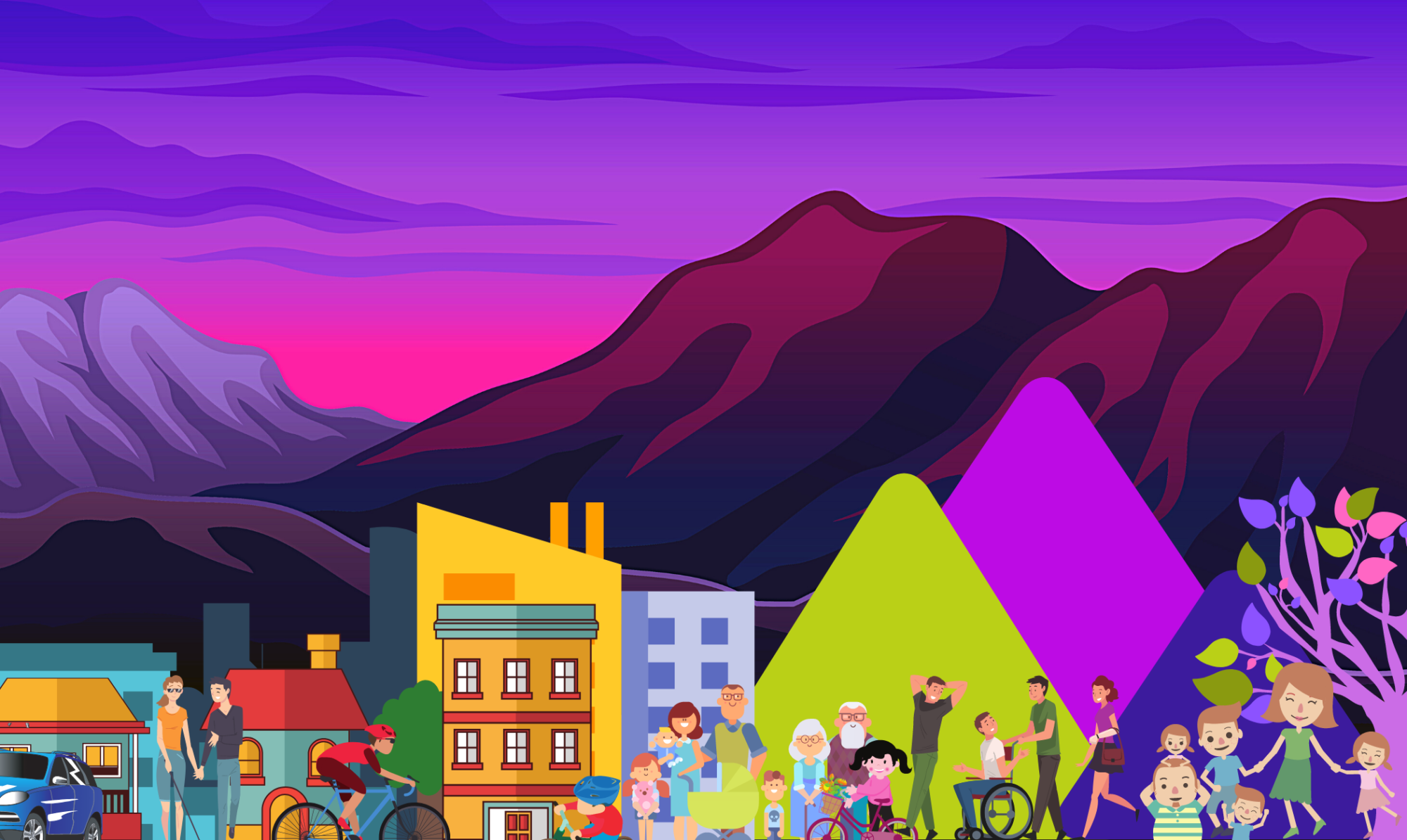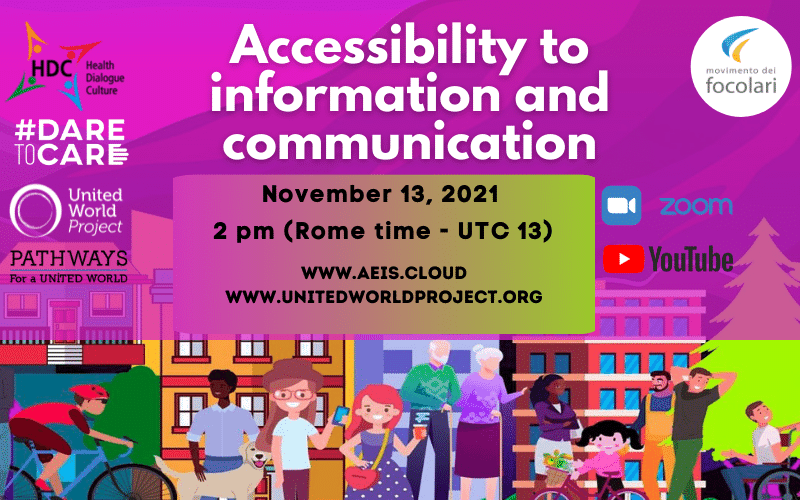November 13, 2021 2 pm (Rome time – UTC 13) | Webinar
Watch again the Webinar on YouTube
Webinar report
by Herman Wouters
In the first video, Rita Bersch ( physiotherapist, from Porto Alegre RS, Brazil) started her presentation by showing an example of the architecture of a barrier free designed school so that any people would be able to use the space anticipating specific needs including the accessibility requirements.
Not only in the architecture but also in teaching and in designing didactic programs and methods the teacher should consider the principles of “universal design” as a fundamental requirements, and consider the differences of the students. The main principles of universal design to access information and culture applied in an educational context are:
- Multiplicity of ways of representing contents using multimedia in addition to the written text and the teacher’s speech involving also other senses: sight, hearing, touch, smell, perception of the body in motions.
- The use of multiple forms of action and expression: writing, drawing, photography, film, word, music, manipulations of objects. The importance of communication in the learning process is stressed: investment in tools and strategies to expand the capacity of expression and understanding of the students with complex needs of communication by using alternative communication e.g. communication tables, folders with graphic symbols.
- Involvement, so that students can identify the best strategies to apply the knowledge acquired (see also: the fundamentals of Universal Design in learning www.cast.org).
Here are some examples:
- For blind people : Audio description (description of what happens in a program without overlapping speech: facial expression, objects in the scene,…), audiobooks, voice activation on digital texts, dubbing to watch a foreign film, Braille, replicas of paintings made in relief.
- For deaf people: sign language, subtitling of programs.
- It’s important to include people with disabilities in the process of the adaptations of a specific situation of environment and learn from them what need to be changed taken into account the tools they already use.
Accessibility is an act of welcome, an act of love.
The second video Together towards Inclusion described the story of the Center for Inclusive Education at De La Salle College of Saint Benilde in the Philippines: an experience of inclusion in a large educational institution. Saint Benilde started as a college that caters for the needs of working students and the Filipino deaf community but over the years opened his arms to different marginalized groups. In 2015 the Centre for Inclusive Education was established to help students with special learning needs in the classroom. In the meantime around 200 students received an assistance by providing accommodations to participate and engage in their classes. The Centre also organize inclusion advocacy activities (seminars, workshops,..).
A discussion followed, raising the following main points
Ger Craddock (Ireland) : There is a national free resource on applying Universal Design for learning for young adults: https://www.solas.ie/design-for-learning-in-irish-further-education-and-training-/
Renzo Andrich (Italy): explains some difficulties in the first video concerning the translation from Portuguese into English because the translation is done by one person speaking and translating different voices in the original video (syntenic voice reading of the computer of a person named Guilherme (14:09) – audio description (21:21))
Herman Wouters (Belgium): How the education in the De La Salle College of Saint Benilde is organised. Are the different persons in the same classes? Do they follow the same lessons? How do they organise the inclusion?
Jeremiah Adriano (Philippines): at Benilde, students with specific learning conditions are perfectly integrated in the normal classes. We asked their teacher for reasonable accommodations.
Jude Latorre (Philippines): In my class at Benilde with maximum 40 students I had students who are blind, with ADHD, with autism, with psychosocial needs such as depression and bipolar disorder. The Center provides a letter to inform the teacher that a specific student has special needs and gives suggestions on how to make accommodations e.g. extended time for examination, special individual sessions, not going too fast, more materials, a different way of presenting the lessons,… With a blind student I prepare the material in a text and sent it to her in advance. She can read the text with a app on her laptop. I have a same kind accommodation for exams using Messenger in Facebook so that she can do the exam in real time like the others. With the student with autism I organize extra sessions with him to comprehend the materials because he needs another pacing. But also classmates sitting next to him provide him extra information. What works for one student will not work for another. So I became creative in looking for solutions. I get no extra pay but I gives me a fulfillment and a good feeling. I call it a second tax-free income not submitted to inflation. That’s my payment for my extra work and it’s give me the opportunity to give to society something back for the good fortune I received myself.
Jeremiah Adriano (Philippines): Already for the past 30 years we gave in Benilde accommodations to the students building a culture of inclusion but now with the Center we formalized it in the Institution. The ultimate goal is to create an environment of inclusion for everyone so that the Center is not needed anymore.
Cynthia Kyi (Myanmar – running a Special Education Center): It was an inspiring and meaningful Zoom meeting for me. Accessibility is – according to me – an act of love in accepting all the diversity but this is also a challenge for us in my country: assisting technology is an very important issue also at the university level. For instance at this moment dyslectic children have no chance to go to university because of their special needs.
Gerald Craddock (Ireland): I loved the phrase that accessibility is an act of welcome. When I was working in front line with people I experienced also that the infection of joy. It was hard work but with a huge reward as a sort of second income with no inflation or tax on it as Jude Latorre from the Philippines said.
Download the flyer >> PDF DOCX
Download the flyer of the entire Webinar series >> PDF DOCX

